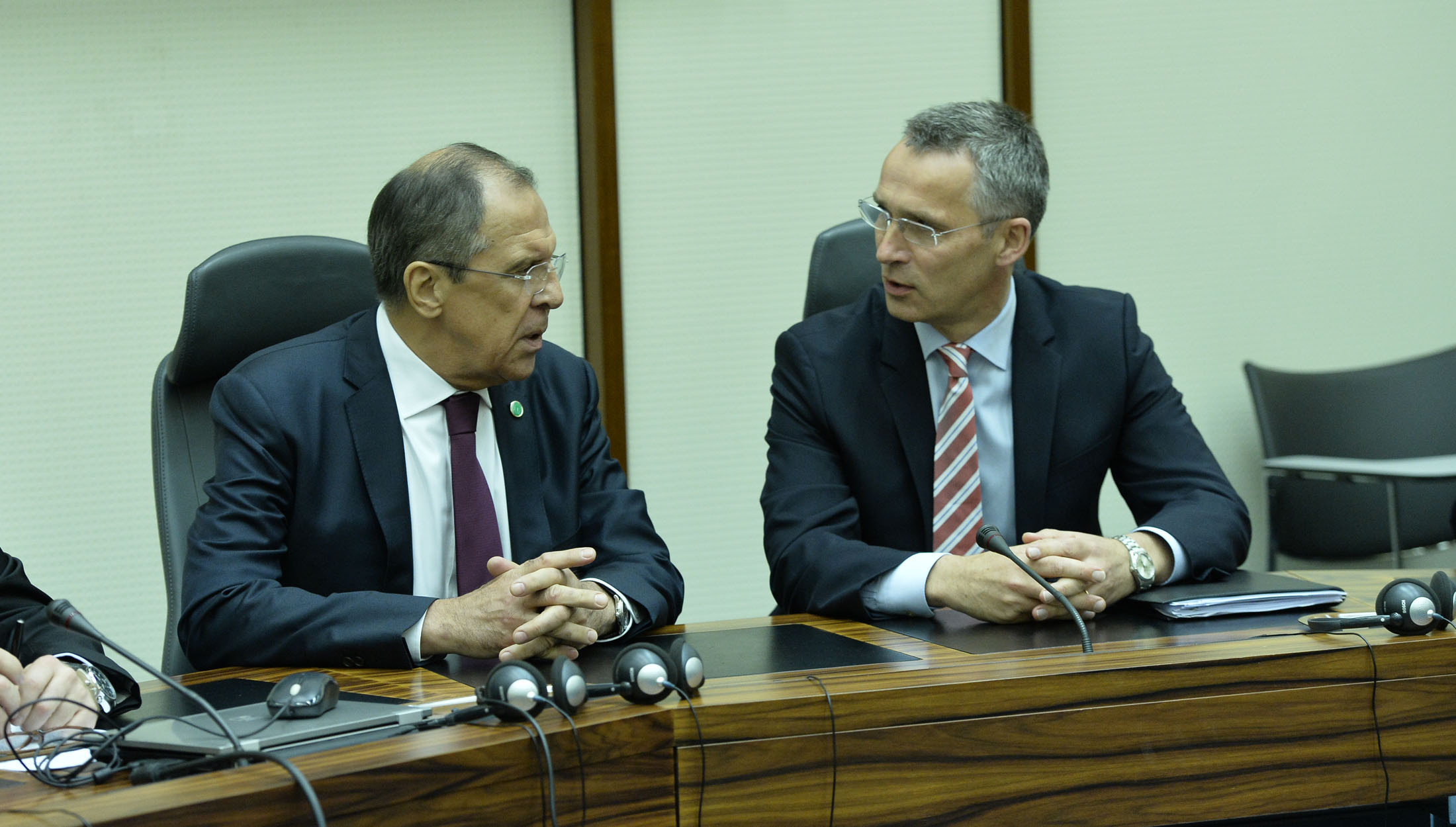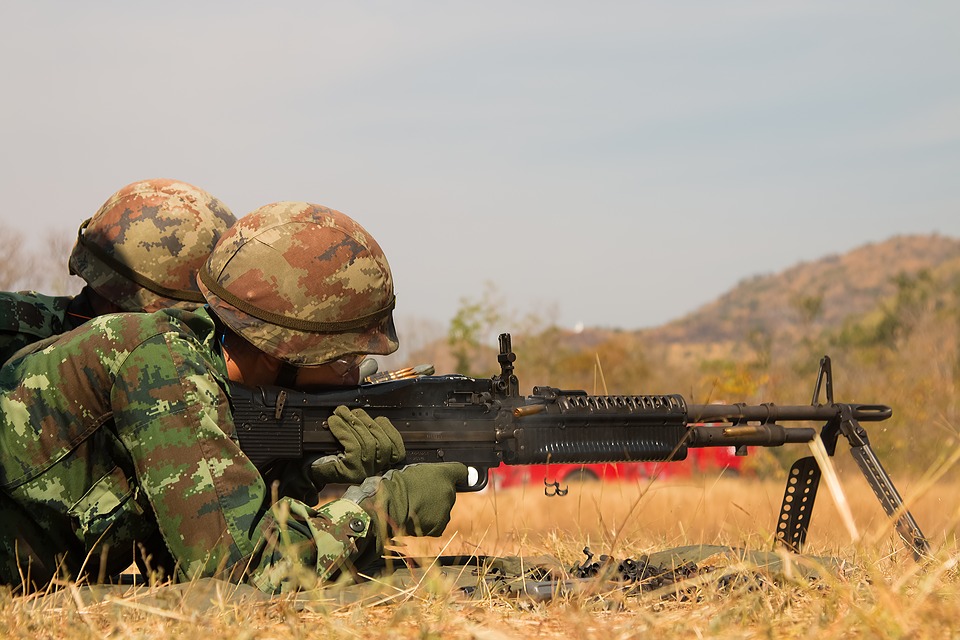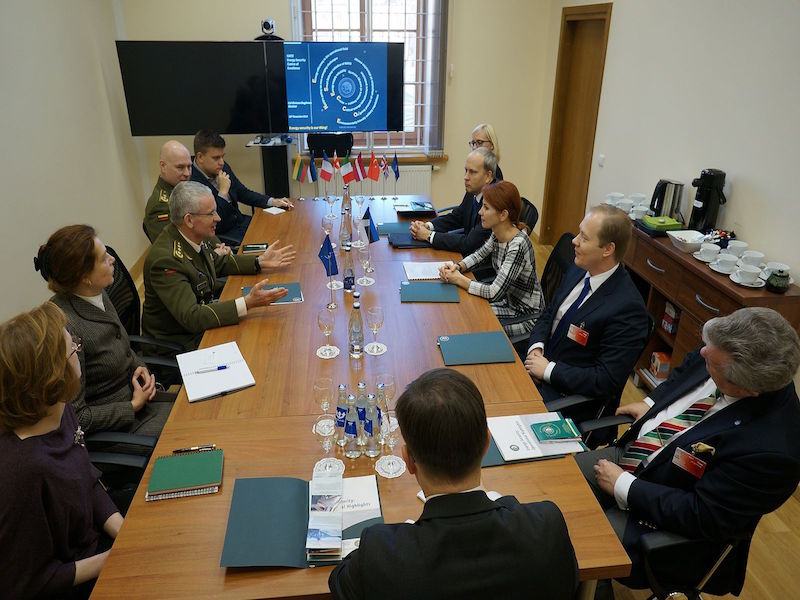Formally established as the bridge between NATO and Russia at the Alliance’s Rome Summit in 2002, the NATO-Russia Council (NRC) was designed to provide a mechanism for “consultation, consensus-building, cooperation, joint decision, and joint action.” However, this body has remained dormant following Russia’s illegal seizure of Crimea in 2014, when NATO responded by suspending all practical civilian and military cooperation within the Council. Two years since its suspension, it was announced that a meeting of the NRC would be held at the ambassadorial level on April 20, 2016.
Since April 2014, engagement between NATO and Russia has been exclusively focused on Ukraine, as demonstrated by the agenda of the NATO-Russia meetings that were held in both June 2014 and March 2015. Though NATO Secretary General Jens Stoltenberg has stated that cooperation between NATO and Russia will not resume until Russia respects international law in Crimea and Eastern Ukraine, the agenda for this meeting appears comparatively more robust than previous consultations. With new dialogue encompassing transparency and risk reduction, security in Afghanistan, and threats posed by regional terrorist groups, how can these security concerns benefit from renewed and strengthened NATO-Russia engagement?
Transparency and Risk Reduction
With crowded skies over Syria, and perpetual military hostilities in Ukraine, the likelihood of a confrontation between NATO and Russia has increased significantly. A report by the London-based European Leadership Network, identified nearly 40 specific incidents that occurred between NATO and Russia in 2014. These included airspace violations, close aerial and naval encounters, and a series of other dangerous provocations. In a 2015 update of the report, 27 new incidents were added, including a narrowly avoided collision between an SAS airliner and a Russian aircraft near Copenhagen, Denmark on December 12, 2014. Notably as well, Russian violations of Turkish airspace this past year resulted in outright military engagement, downing a Russian military jet over Turkish airspace in November 2015.
The NRC has the ability to play an important role in mitigating future escalations between Russia and NATO, through both the promotion of open dialogue between the two sides, as well as designated forums within the NRC. The NRC’s Cooperative Airspace Initiative, and, its Defence Transparency, Strategy and Reform Working Group each could contribute to lowering the probability of military confrontations in the future.
Afghanistan and Regional Terrorist Groups
Cooperation through the NRC has led to a multitude of successes in Afghanistan, notably in counter-narcotics campaigns. Between 2005-2012, the NRC Project for Counter-Narcotics Training trained around 2500 officers, receiving praise from the United Nations Office on Drugs and Crime (UNODC). In Afghanistan, the NRC was also instrumental in facilitating the land transit of non-military equipment for the NATO-led International Security Assistance Force (ISAF) mission, allowing for the movement of multiple cargo shipments through Russian territory. With an impending spring offensive from a resurgent Taliban, NATO-Russia cooperation can play an important role by bolstering regional security initiatives.
Currently, both NATO Members and Russia are working aggressively, but separately to counter the threat posed by the Islamic State (ISIS). ISIS, as an ascendant and increasingly globalized terrorist organization, rising from the void left by the Syrian Civil War, has carried out sophisticated terror attacks against NATO states and Russia. As the NRC specifically held a meeting of the Ad-Hoc Working Group on the Terrorist Threat to the Euro-Atlantic Area, and published an Action Plan on Terrorism, there is a strong foundation within the NRC that can be used to counter the rise of ISIS and other terrorist groups.
A Pathway Forward?
In response to the Russian invasion of Georgia in 2008, the Alliance has suspended the NRC once before. During that time, meetings of the NRC were suspended for a year until they managed to reconvene, and civilian and military cooperation was resumed. Despite fundamental differences in Georgia, the NRC resumed formal cooperation to support joint efforts in Afghanistan, and in tackling nuclear proliferation and Somali piracy. With a similarly broad agenda scheduled for the NRC meeting on April 20, rapprochement is possible, but less likely. Unlike Georgia, Ukraine did not have a pre-existing frozen conflict, and furthermore, territory was annexed in clear violation of international law.
Given the stark divisions in NATO-Russia relations created by the Ukraine crisis, it will be difficult to re-establish civilian and military cooperation. Though renewed and strengthened engagement provides political and security benefits for both sides, a durable and mutually agreed upon solution to the Ukraine crisis must be developed before any meaningful engagement can resume.




